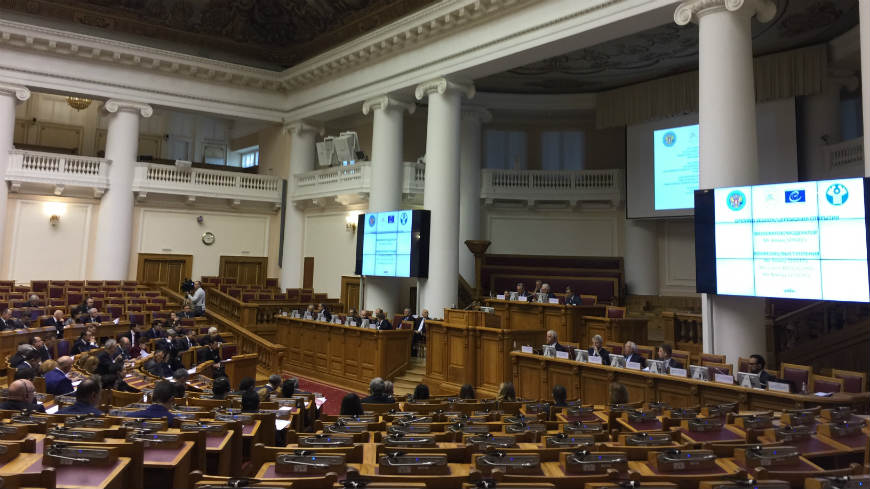Ways of improving the functioning of electoral administrations was the focus of an international conference taking place in the Tavrichesky Palais, St Petersburg, Russian Federation, on 15-16 May 2017.
More than 120 participants representing about 40 countries and several international institutions, including chairs and members of central electoral commissions and administrations from Europe and beyond, defined measures needed to improve functioning of electoral administrations and exchange good practices advancing efficiency, visibility and interactivity of the electoral management bodies.
This 14th European Electoral Management Bodies (EMBs) Conference was organised by the Council of Europe’s constitutional experts body, the Venice Commission; the Central Election Commission of Russia and the Interparliamentary Assembly of the Commonwealth of Independent States (CIS).
Gianni Buquicchio, President of the Venice Commission; Alexey Sergeev, Secretary General of the Interparliamentary Assembly of the CIS, and Ella Pamfilova, Chairperson of the Central Election Commission of the Russian Federation, opened the conference. International institutions, including the European Parliament, the Organisation for Security and Co-operation in Europe/Office for Democratic Institutions and Human Rights (OSCE/ODIHR), the Organization of American States, the Association of European Election Officials (ACEEEO), International IDEA and other institutions active in the electoral field also took part in the discussion.
The results of a survey entitled “Improving electoral management: the organisational determinants of electoral integrity” were presented to the Conference. The event participants were adopted a “St Petersburg Declaration” that would invite the EMBs, lawmakers and political parties to improve laws and practices to ensure better functioning of the electoral administrations and thus the conduct of democratic elections.
This activity partially falls in the framework of the Partnership for Good Governance (PGG) for Armenia, Azerbaijan, Georgia, Republic of Moldova, Ukraine and Belarus, funded by the European Union and the Council of Europe and implemented by the Council of Europe.

